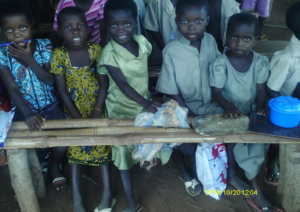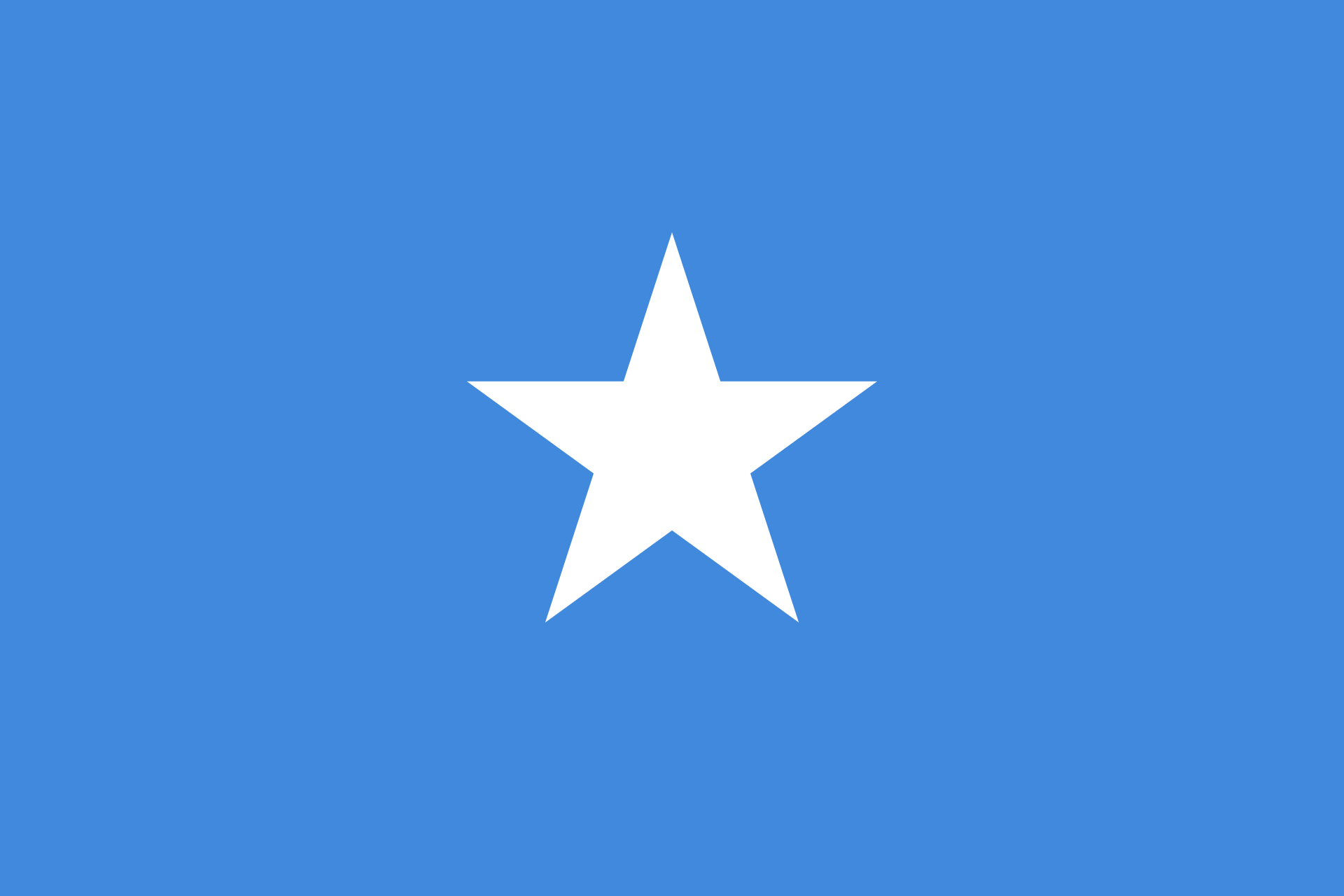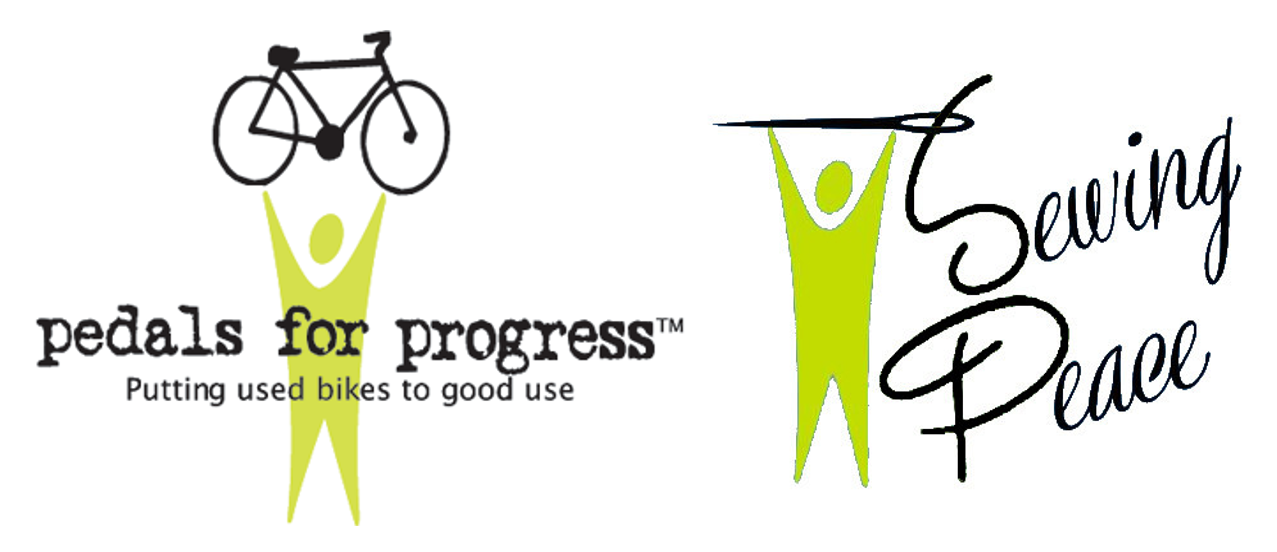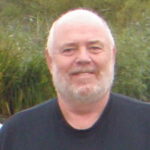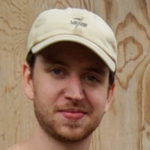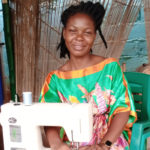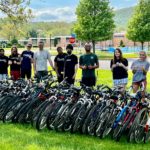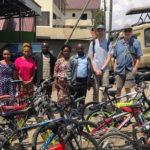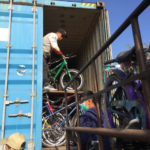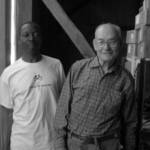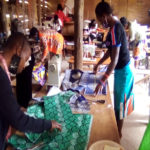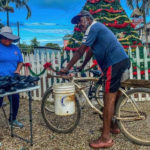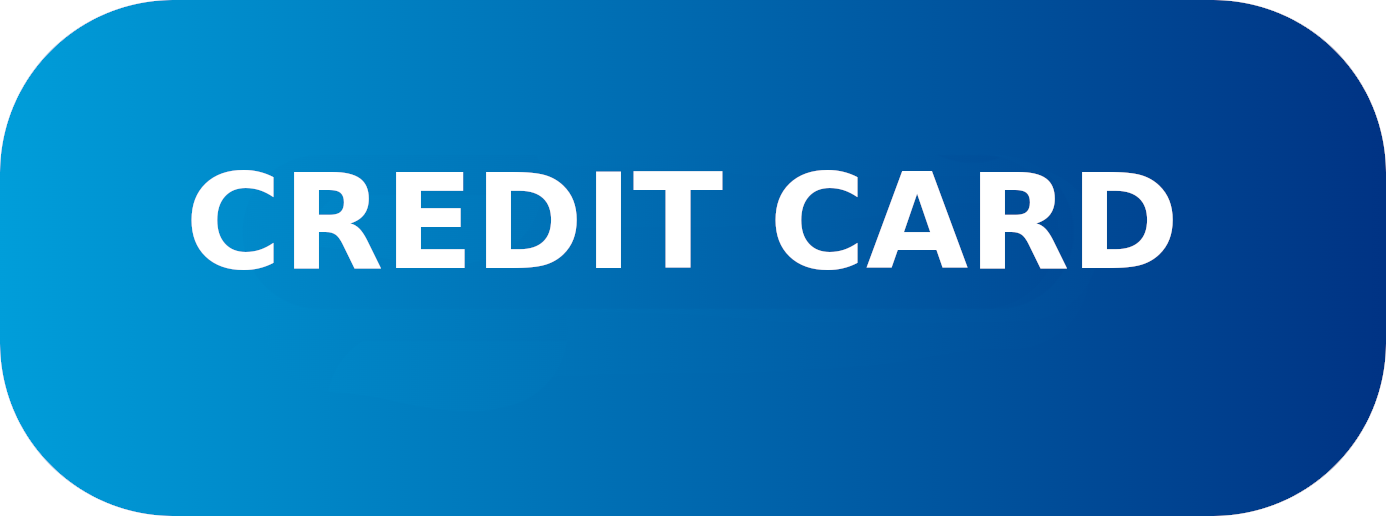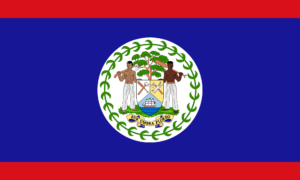By Mathew Yawe
Spring 2022 Newsletter
On behalf of the Mityana Open Troop Foundation, I have compiled a progressive report for November 2021 to May 2022.
Mityana Open Troop Foundation is a registered Community Based Organization, with a Vocational Skills Training Centre, which recruits and trains vulnerable youths, mostly young girls formerly selling sex for survival and girls expelled from schools due to teenage pregnancies. We teach our students sustainable vocational skills. Since the inception of vocational skills training at our centre in 2007, a total of over 915 have graduated. Some got employed while others set up their own workshops. Every graduate of our program is given a sewing machine from Sewing Peace, USA. Without equipment, the graduation certificate is no help, as 90% of graduates can’t afford tools.
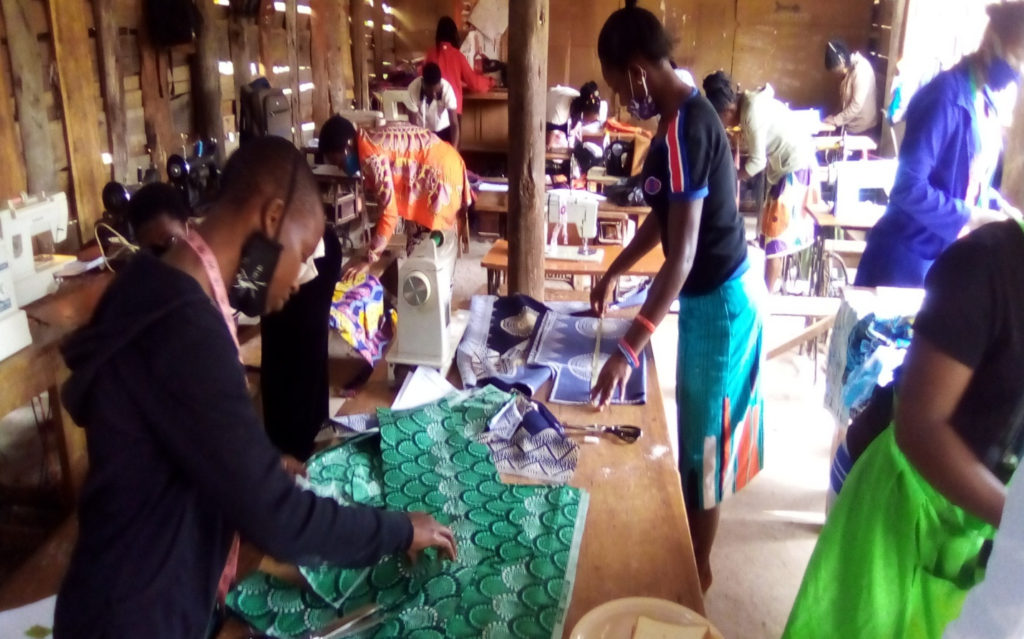 Students are trained for 2 years in Sewing & Fashion Design, Hair Dressing & Weaving, Motor Vehicle & Cycle Mechanics, Carpentry & Joinery, Metal Fabrication, or Agriculture & Animal Husbandry.
Students are trained for 2 years in Sewing & Fashion Design, Hair Dressing & Weaving, Motor Vehicle & Cycle Mechanics, Carpentry & Joinery, Metal Fabrication, or Agriculture & Animal Husbandry.
Every year, there are 3 training terms of 3 months each; for each term the centre recruits whoever wishes to join.
Achievements:
- The Vocational Skills Training Centre resumed training after a 2-year Covid-19 lockdown! We have re-mobilized 92 Trainees.
- We received and cleared 72 sewing machines (including a small embroidery machine) from Pedals for Progress project USA, all in good condition. Some machines are used in our training workshops, and some are sold to help pay for shipping and customs costs, and project costs such as paying teachers.
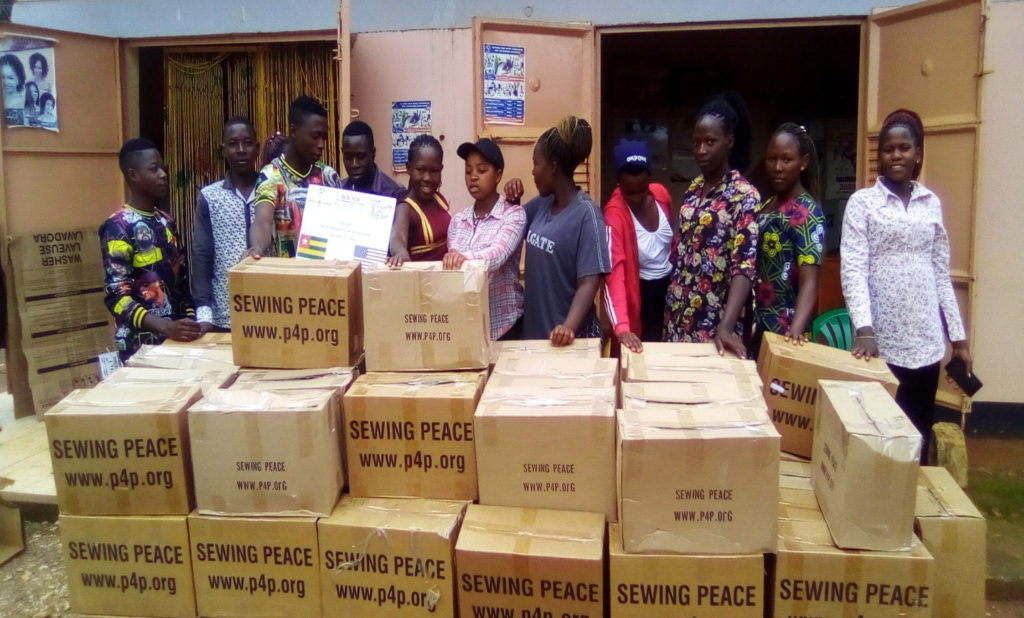
- We acquired a new Janome embroidery machine, which makes school badges and student name tags. The funds were donated by Rotarian Chris Young of Australia.
Field Reports
Rose Namukasa
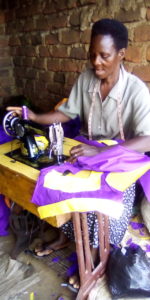 Rose Namukasa is a 2013 graduate of our project, a single mother aged 35 years looking after her 7 children.
Rose Namukasa is a 2013 graduate of our project, a single mother aged 35 years looking after her 7 children.
She makes school uniforms. She earns an average of US $3 per day, which she uses to pay school fees for 3 children, and to pay rent for the room where she works.
Four of her children are not studying because she can’t afford their school fees.
She informed me that in the morning hours she goes into the garden with the 4 children who are not studying and grows food for survival, then at 12 noon she goes to her sewing shop.
She further said that there are some poor seasons where she doesn’t earn any coin!
John Mary Mayanja
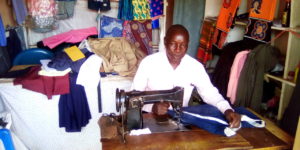 John Mary Mayanja is a 2010 project graduate, aged 55 years with 2 families of 12 African children.
John Mary Mayanja is a 2010 project graduate, aged 55 years with 2 families of 12 African children.
He formerly had a small retail shop which was not working well. He admired sewing skill so he decided to join our project in 2009, graduating in 2010. He is now a supplier of uniforms to his area schools; he also has other customers in the community.
He earns per day an average of US $4, which he uses to pay rent for the room where he works and to pay school fees for his children.
He has land where he and his children practice mixed farming.
John Mary is proud of the Mityana Open Troop Foundation, which taught him his sewing skills. He extends his happiness and appreciations to the Sewing Peace Project USA for the sewing machine he got when he graduated from through the Mityana Open Troop Foundation Project. The machine has been performing well ever since he got it.
Project Finances: Income And Expenditure November 2021 to May 2022
Exchange rate: 1 US Dollar (USD) to 3,350 Uganda Shillings (UGX)
|
November 2021 to May 2022 |
|
Income (USD) |
Expenditure (USD) |
| 1. |
School fees from trainees |
$2,353 |
Salaries for instructors and support staff |
$1,176 |
| 2. |
Sales of sewing machines |
$588 |
Sewing machine Customs taxes, Mombasa taxes, clearing & handling, storage, transportation to Mityana |
$1,000 |
| 3. |
Sewing & fashion products, embroidering services, school uniforms |
$147 |
Trainee feeding |
$851 |
| 4. |
Carpentry workshop products |
$206 |
Training working materials |
$600 |
| 5. |
Government of Uganda, youths skilling program support |
-Nil- |
Electricity bills for school, carpentry, sewing shop |
$421 |
| 6. |
Kolping Mityana Womens Project, 5 Vulnerable Orphanage school fees support |
$500 |
Computer services & stationary |
$50 |
| 7. |
Fields of Life Orphanage school fees support |
$147 |
Sewing Show Room & Carpentry Workshop premise Renting |
$597 |
| 8. |
Unbound Kampala Ltd Vulnerable Orphanage school fees support |
$152 |
Firewood |
$147 |
| 9. |
Mildmay Uganda.
School fees for vulnerable girls |
-Nil- |
Condolence support to teachers & students |
$88 |
| 10. |
Donation for Janome embroidery machine from Rotarian Chris Young of Australia |
$1,260 |
Sewing machine servicing |
$44 |
|
|
|
Compound slashing / maintaining |
$60 |
|
|
|
Operational license |
$59 |
|
|
|
Pay as you earn Ugandan tax for our project & staff |
$100 |
|
TOTAL: |
$5,353 |
|
$5,193 |
Therefore, the project has made a profit of US $160 from November 2021 to May 2022.
Challenges / Limitations!
- The Ugandan education system and economy were severely affected by the Covid-19 pandemic. In Uganda all training institutions were under a lockdown from March 2020 until November 2021. This caused a serious loss of income at the vocational project!
- The Organization still encounters challenges in raising funds for shipping sewing machines from Pedals For Progress USA and for paying Ugandan custom taxes for the machines.
- Our project lacks a toilet for boys. Currently boys and girls share one pit latrine, which is not recommended by the Ministry of Education.
- The Organization lacks a computer, printer, and photocopier, which we need to print end-of-term exams and other office documents. Currently all computer work is taken to town.
- The project needs a computer lab with internet access, to enable students to find dress fashions, learn computer skills, and get health information. In addition, this computer lab would be used by our community volunteers to access the Ministry of Health for health-related issues.
- The Organization requires office furniture and a staff room, as instructors don’t have a place to sit and keep their kits.
- The Training Centre lacks clean water. There is a very small (2000-liter) water tank, which lasts 2 days. Then students have to go on foot 1 km in search of water from unprotected water sources.
- We have many cases of malaria among project trainees, as they lack mosquito nets.
- The project lacks an incinerator, where sanitary pads and other wastes can be burnt easily.
Conclusion
In conclusion, on behalf of the Mityana Open Troop Foundation, I extend our sincere thanks to the following great friends / partners, who have been always so supportive to our Ugandan project, even during the Covid-19 pandemic:
Mr. Chris Eldridge, UK; Mr. & Mrs. Colin Neil Dippie and Jane Louise Dippie; Mr. Nino Ardizz and M/s. Madison Ardizzi; Rotarian Ivonne Reilly Sencebey, USA; Rotarian Chris Young of Australia.
I also extend our thanks to Mr. David Schweidenback, President of Sewing Peace, and the generous communities of the USA, who have been donating high-quality refurbished sewing machines to our needy Ugandan communities. Please, the used sewing machines which seem unimportant in the USA have uplifted our communities, changing people’s lives by creating a daily source of income. Thanks to all the volunteers involved in the collection of sewing machines and bicycles.
‘’The Good You Do To Others, Automatically Comes Back To You Unknowingly’’
Yours,
Mathew Yawe
Executive Director Mityana Open Troop Foundation
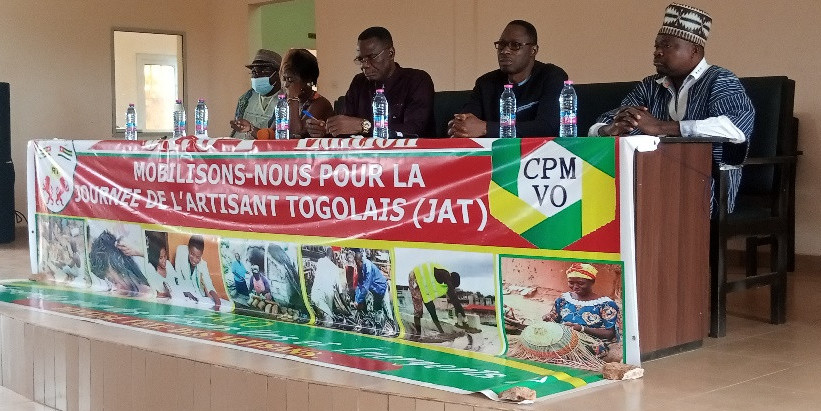 The attendees included the artisans, members of the office and president of the finance commission of the chamber of trade of the prefecture of Vo, and the coordinator of DRVR-TOGO.
The attendees included the artisans, members of the office and president of the finance commission of the chamber of trade of the prefecture of Vo, and the coordinator of DRVR-TOGO.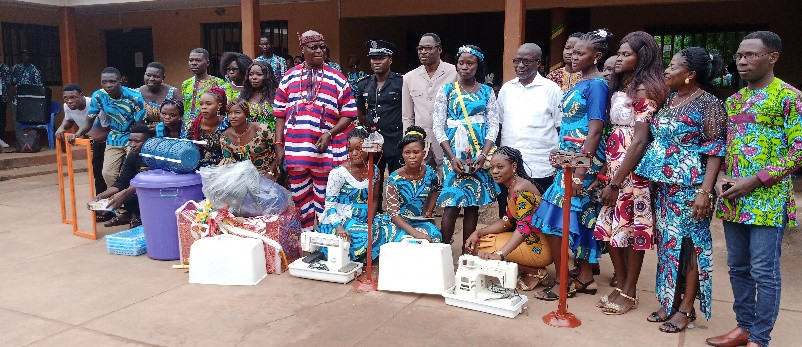 The entire population of Vo and especially the families of the trainees who received sewing machines offer their sincere thanks to P4P/SP.
The entire population of Vo and especially the families of the trainees who received sewing machines offer their sincere thanks to P4P/SP.
